Collecting eggs from the nest boxes is one of the great joys of backyard chicken keeping and when the yield from the nest boxes isn’t what we expect, it can be disappointing, and at times, cause for concern. A drop in egg production can be one of the first signs of a problem in our flocks and just as we pay attention to our chickens’ droppings to monitor their health, so too should we pay attention to the hens’ daily egg count for signs of trouble. The following are the most common causes of a drop in egg production in backyard flocks with solutions offered where possible.
Fluctuations in egg production can be caused by a myriad of physical, behavioral, environmental and emotional triggers, some requiring remedial action and others, no cause for alarm.
To determine the reason for a decline in egg production, a complete flock history and physical assessment of all birds should be performed, asking questions such as: have any new chickens been added to the flock, were new birds properly quarantined, have there been any changes in feed, housing arrangements, weather, lighting, droppings, have there been any signs of predators or sickness such as eye discharge, sneezing, lethargy, etc. After taking all factors into consideration, the cause often becomes apparent.
DECREASED LIGHTING CONDITIONS
Light triggers a hen’s pituitary gland to produce eggs. Regular egg-laying requires 14 to 16 hours of light and decreased daylight hours in autumn and winter can cause egg production to decline or stop completely. Supplemental light can be added to the coop to encourage egg-laying with no detrimental effects to the hen despite commonly parroted myths to the contrary.
MOLTING
Is the natural process of feather shedding and re-growth. Hens divert protein and energy away from egg production to concentrate on feather growth. Changing laying hens’diet to a higher protein chicken ration such as a grower feed during a molt can aid in efficient feather growth, allowing hens to get back to egg laying sooner (provided they have all the other resources necessary to do so).
BROODINESS
A broody hen in the coop can affect a flock’s egg production. Not only does she stop laying eggs; the mere sight of her sitting on a nest can inspire a chain reaction of hens to brood, resulting in fewer eggs overall. Broodies should be broken properly or permitted to hatch eggs in a location away from the nest boxes to ensure a prompt return to egg-laying and to preserve their health.
NUTRITIONAL DEFICIENCY
Hens cannot produce eggs if they do not have the nutritional resources necessary to make them. Backyard chicken keepers are accidentally depriving their flocks of the nutrients they need to be healthy and productive by offering too many dietary extras in addition to their nutritionally complete commercial layer feed. Anything laying hens eat that is not layer feed, including: veggies, fruits, mealworms, table scraps, grubs, and designer goodies, has the effect of diluting the nutrient balance in their feed, which prevents them from performing all the functions necessary to support their immune systems and produce eggs, and re-growing feathers properly. The effect is essentially the same as a human mother producing breastmilk for an infant and adding water to it. That formerly nutritionally complete, balanced diet is diluted, preventing the infant from getting growing and developing properly. Reduced egg production can result from offering too many snacks/treats or from mixing a complete commercial layer feed with anything ( including scratch, cracked corn, oats, dietary supplements). The wrong feed & being physically prevented from getting to the feeders by another flock member can also lead to nutritional deficiencies, resulting in fewer eggs.
SOLUTION: Provide laying hens with a complete, commercial layer feed and limit dietary extras including healthy items (fruits, veggies, mealworms, kitchen scraps, leftovers, commercially sold supplements, etc.) to no more than two tablespoons per day per hen- and not every day. I skip dietary extras completely- they are of no benefit to chickens nutritionally.
WATER DEPRIVATION
Access to clean, fresh, cool water at all times is imperative to the formation of eggs. Egg production will suffer if a hen’s access is limited physically, (frozen or too far away) restricted, (prevented from reaching it by another chicken) or unpalatable (dirty/medicated/warm). The use of a poultry nipple waterer can solve most water-related problems. A cookie tin water heater will keep water from freezing inside traditional drinkers in winter inexpensively and effectively.
STRESS AND CHANGE
Hens are extremely sensitive to stress and typically respond to it by putting the brakes on egg-laying. They particularly dislike change, which is a major cause of stress and decline in egg-laying. Any one of the following can adversely affect egg production: changes in feed, changes in coop layout, moving to a different farm or coop, adding or losing flock members, annoyance from a well-intentioned child, a fright from a predator, irritation from internal parasites (worms, coccidia) or external parasites (lice, mites, rodents) violent weather, barking dogs and high heat.
DISEASE, ILLNESS, PARASITES
Hens that are ill or have parasites such as worms, coccidia, mites or lice, do not perform optimally. Taken in conjunction with flock history and any other symptoms, a drop in egg production can indicate that hens are sick or suffering from a parasite infestation. For example: if a drop in egg production follows the addition of new chickens to the flock and no other physical symptoms are noted, a communicable disease or parasite should be suspected and investigated further.
**Any time a sick chicken dies suspiciously, a necropsy (post mortem exam) of the deceased bird(s) should be performed by an animal pathology lab. Always preserve the body for a necropsy by keeping it cold, never frozen, until further instruction is received. Much more information about where and how to get a necropsy in your state can be found HERE.**
EGG HIDING
Free-range or pasture-raised hens may fall into the unwelcome habit of laying eggs outside the coop in secluded locations. Hens have been known to disappear for weeks, secretly brood eggs and return to the flock with baby chicks in tow! Coop training ordinarily eliminates the problem of egg-hiding.
EGG EATING
Everyone loves fresh eggs, and chickens are no exception. Hens often start eating eggs when they discover a broken egg in a nest box. Once a chicken learns eggs are edible, it becomes difficult to deter intentional egg breaking and eating. Much more on addressing this problem behavior here.
AGE
After two years, a hen’s production naturally declines. An aging flock will naturally produce fewer eggs after its first two years. Nothing can reverse this process. While many hens will continue laying eggs their entire lives, production will not be at the same rate as it was the first two years.
PREDATOR THEFT
Various predators can be responsible for egg theft including: raccoons, rats, snakes, opossums and skunks. Coops should be secured with hardware cloth to ensure that nocturnal predators cannot gain access to the birds at night when they are most vulnerable.
REPRODUCTIVE DYSFUNCTION
Disease or malfunctions of the oviduct such as egg-binding and internal laying can cause a drop in egg production. Seek veterinary help for a hen that has a swollen, water-balloon-like abdomen or signs of egg-looking junk are found.
Kathy Shea Mormino
Affectionately known internationally as The Chicken Chick®, Kathy Shea Mormino shares a fun-loving, informative style to raising backyard chickens. …Read on


shop my SPONSORS
Collecting eggs from the nest boxes is one of the great joys of backyard chicken keeping and when the yield from the nest boxes isn’t what we expect, it can be disappointing, and at times, cause for concern. A drop in egg production can be one of the first signs of a problem in our flocks and just as we pay attention to our chickens’ droppings to monitor their health, so too should we pay attention to the hens’ daily egg count for signs of trouble. The following are the most common causes of a drop in egg production in backyard flocks with solutions offered where possible.
Fluctuations in egg production can be caused by a myriad of physical, behavioral, environmental and emotional triggers, some requiring remedial action and others, no cause for alarm.
To determine the reason for a decline in egg production, a complete flock history and physical assessment of all birds should be performed, asking questions such as: have any new chickens been added to the flock, were new birds properly quarantined, have there been any changes in feed, housing arrangements, weather, lighting, droppings, have there been any signs of predators or sickness such as eye discharge, sneezing, lethargy, etc. After taking all factors into consideration, the cause often becomes apparent.
DECREASED LIGHTING CONDITIONS
Light triggers a hen’s pituitary gland to produce eggs. Regular egg-laying requires 14 to 16 hours of light and decreased daylight hours in autumn and winter can cause egg production to decline or stop completely. Supplemental light can be added to the coop to encourage egg-laying with no detrimental effects to the hen despite commonly parroted myths to the contrary.
MOLTING
Is the natural process of feather shedding and re-growth. Hens divert protein and energy away from egg production to concentrate on feather growth. Changing laying hens’diet to a higher protein chicken ration such as a grower feed during a molt can aid in efficient feather growth, allowing hens to get back to egg laying sooner (provided they have all the other resources necessary to do so).
BROODINESS
A broody hen in the coop can affect a flock’s egg production. Not only does she stop laying eggs; the mere sight of her sitting on a nest can inspire a chain reaction of hens to brood, resulting in fewer eggs overall. Broodies should be broken properly or permitted to hatch eggs in a location away from the nest boxes to ensure a prompt return to egg-laying and to preserve their health.
NUTRITIONAL DEFICIENCY
Hens cannot produce eggs if they do not have the nutritional resources necessary to make them. Backyard chicken keepers are accidentally depriving their flocks of the nutrients they need to be healthy and productive by offering too many dietary extras in addition to their nutritionally complete commercial layer feed. Anything laying hens eat that is not layer feed, including: veggies, fruits, mealworms, table scraps, grubs, and designer goodies, has the effect of diluting the nutrient balance in their feed, which prevents them from performing all the functions necessary to support their immune systems and produce eggs, and re-growing feathers properly. The effect is essentially the same as a human mother producing breastmilk for an infant and adding water to it. That formerly nutritionally complete, balanced diet is diluted, preventing the infant from getting growing and developing properly. Reduced egg production can result from offering too many snacks/treats or from mixing a complete commercial layer feed with anything ( including scratch, cracked corn, oats, dietary supplements). The wrong feed & being physically prevented from getting to the feeders by another flock member can also lead to nutritional deficiencies, resulting in fewer eggs.
SOLUTION: Provide laying hens with a complete, commercial layer feed and limit dietary extras including healthy items (fruits, veggies, mealworms, kitchen scraps, leftovers, commercially sold supplements, etc.) to no more than two tablespoons per day per hen- and not every day. I skip dietary extras completely- they are of no benefit to chickens nutritionally.
WATER DEPRIVATION
Access to clean, fresh, cool water at all times is imperative to the formation of eggs. Egg production will suffer if a hen’s access is limited physically, (frozen or too far away) restricted, (prevented from reaching it by another chicken) or unpalatable (dirty/medicated/warm). The use of a poultry nipple waterer can solve most water-related problems. A cookie tin water heater will keep water from freezing inside traditional drinkers in winter inexpensively and effectively.
STRESS AND CHANGE
Hens are extremely sensitive to stress and typically respond to it by putting the brakes on egg-laying. They particularly dislike change, which is a major cause of stress and decline in egg-laying. Any one of the following can adversely affect egg production: changes in feed, changes in coop layout, moving to a different farm or coop, adding or losing flock members, annoyance from a well-intentioned child, a fright from a predator, irritation from internal parasites (worms, coccidia) or external parasites (lice, mites, rodents) violent weather, barking dogs and high heat.
DISEASE, ILLNESS, PARASITES
Hens that are ill or have parasites such as worms, coccidia, mites or lice, do not perform optimally. Taken in conjunction with flock history and any other symptoms, a drop in egg production can indicate that hens are sick or suffering from a parasite infestation. For example: if a drop in egg production follows the addition of new chickens to the flock and no other physical symptoms are noted, a communicable disease or parasite should be suspected and investigated further.
**Any time a sick chicken dies suspiciously, a necropsy (post mortem exam) of the deceased bird(s) should be performed by an animal pathology lab. Always preserve the body for a necropsy by keeping it cold, never frozen, until further instruction is received. Much more information about where and how to get a necropsy in your state can be found HERE.**
EGG HIDING
Free-range or pasture-raised hens may fall into the unwelcome habit of laying eggs outside the coop in secluded locations. Hens have been known to disappear for weeks, secretly brood eggs and return to the flock with baby chicks in tow! Coop training ordinarily eliminates the problem of egg-hiding.
EGG EATING
Everyone loves fresh eggs, and chickens are no exception. Hens often start eating eggs when they discover a broken egg in a nest box. Once a chicken learns eggs are edible, it becomes difficult to deter intentional egg breaking and eating. Much more on addressing this problem behavior here.
AGE
After two years, a hen’s production naturally declines. An aging flock will naturally produce fewer eggs after its first two years. Nothing can reverse this process. While many hens will continue laying eggs their entire lives, production will not be at the same rate as it was the first two years.
PREDATOR THEFT
Various predators can be responsible for egg theft including: raccoons, rats, snakes, opossums and skunks. Coops should be secured with hardware cloth to ensure that nocturnal predators cannot gain access to the birds at night when they are most vulnerable.
REPRODUCTIVE DYSFUNCTION
Disease or malfunctions of the oviduct such as egg-binding and internal laying can cause a drop in egg production. Seek veterinary help for a hen that has a swollen, water-balloon-like abdomen or signs of egg-looking junk are found.



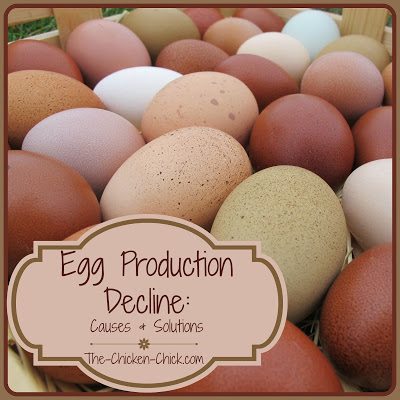
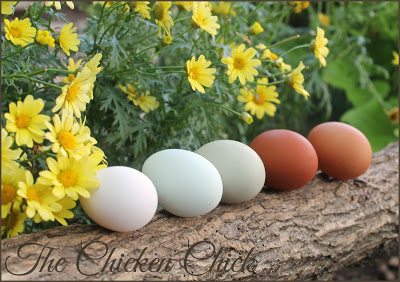



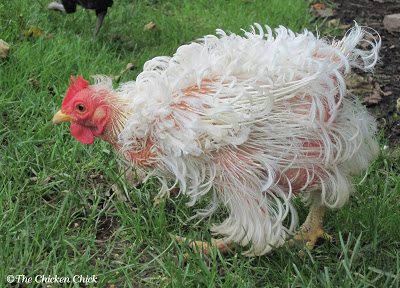
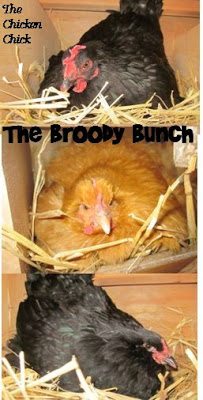
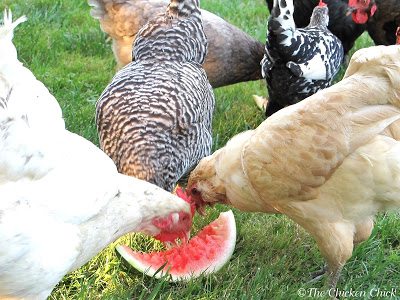
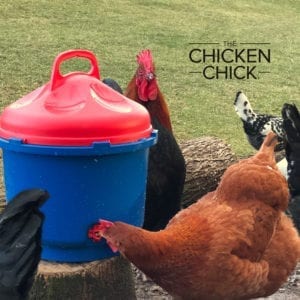
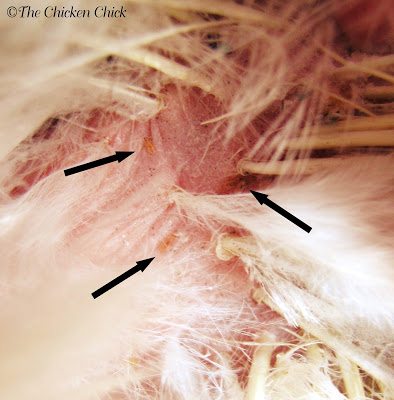
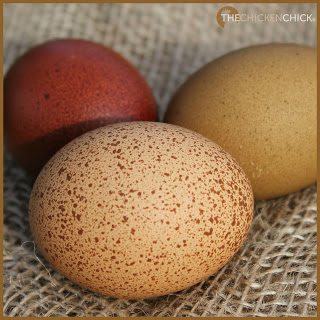
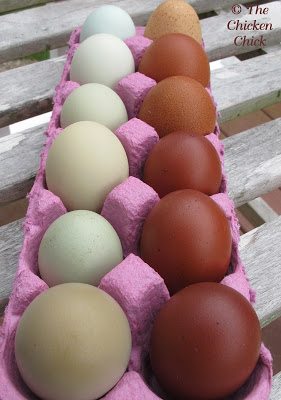
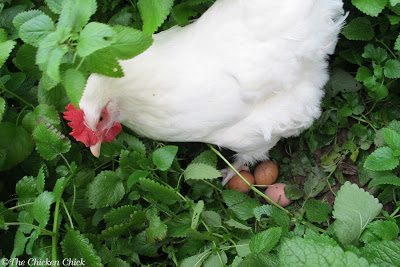
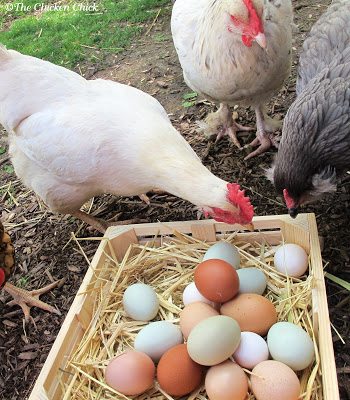
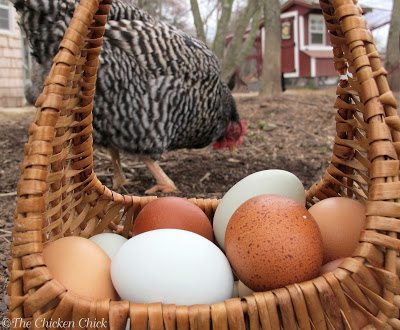
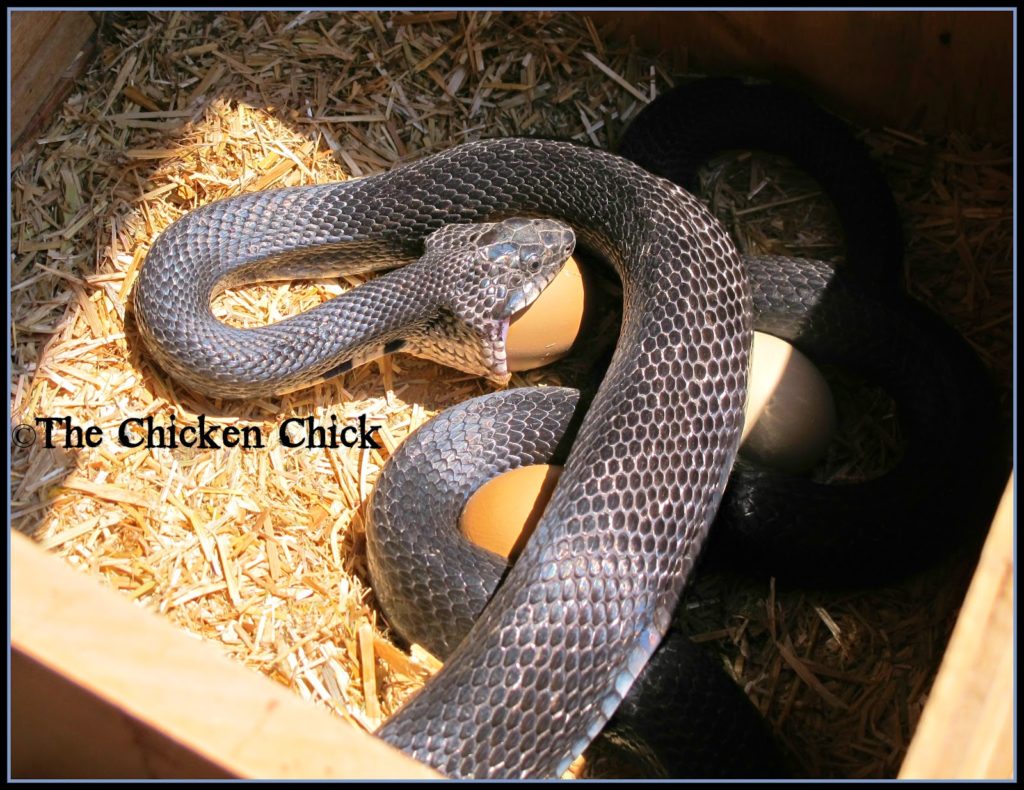

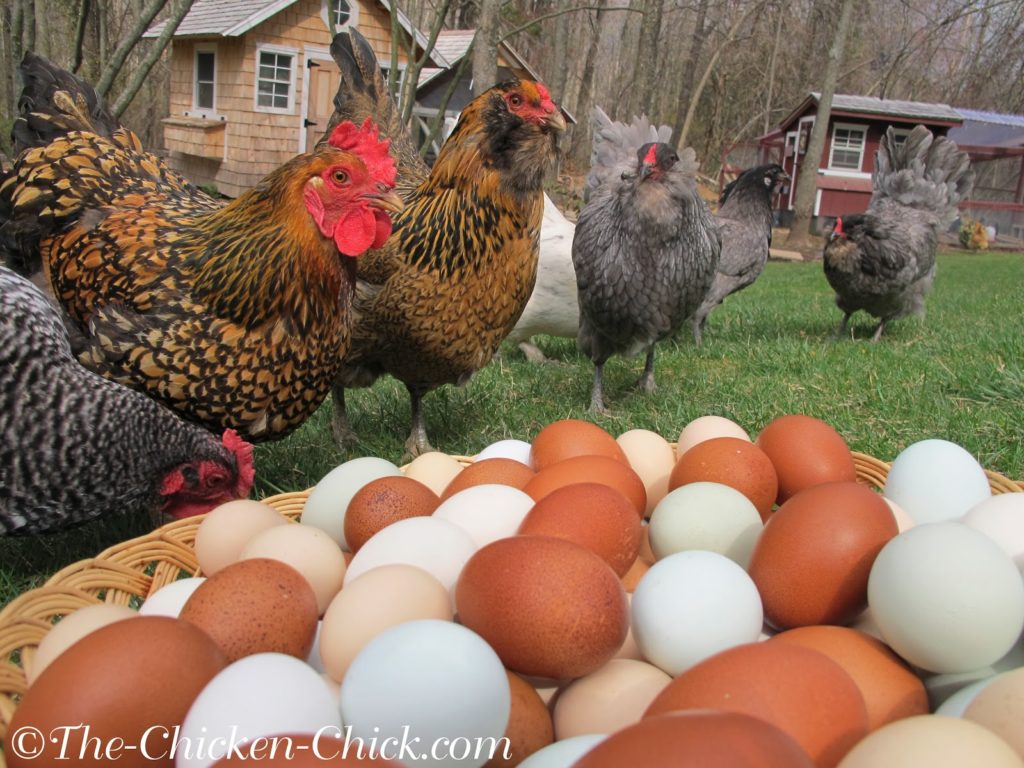






















I would love this broader. Thank you.
Im new to chickens this past year. I use Purina layer feed. I have 5 girls. We got them back in april. We did have a rooster in the flock that the town wouldn’t let us keep. The girls have not layed egss yet. They have full acess to water and feed at all times. They get the occasional snack n treat. They seem healthy and happy. No sgins of a sick hen. Im confused.
How old are your birds? When did they hatch?
I have 13 beautiful, backyard raised, and diverse group of hens. This last summer I discovered that I had quite a mite problem. Many of the birds had lost quite a few of their tail feathers and other area feathers to include one who lost all her neck feathers.I treated all my girls with elector psp and their entire coop. That was in August.it is now November and I dont see a lot of new feathers yet. Now some of the hens are molting so now I cant tell if they are healing, molting, or getting worse. Egg production has… Read more »
Their diet is incorrect, unbalanced and likely the cause. I strongly recommend buying Purina feed (or similar name brand, bagged feed) and NOTHING ELSE. You are diluting their diet by feeding them scratch, and other treats. The oyster shells, free-choice are necessary, but all the other stuff is negatively impacting them. While they molt, feed them either a grower feed or a non-medicated starter feed until their feathers are mostly filled in, then switch back to layer feed. Again, the local farm brand is not as reliable a nutrient balance as a feed from a company like Purina that has… Read more »